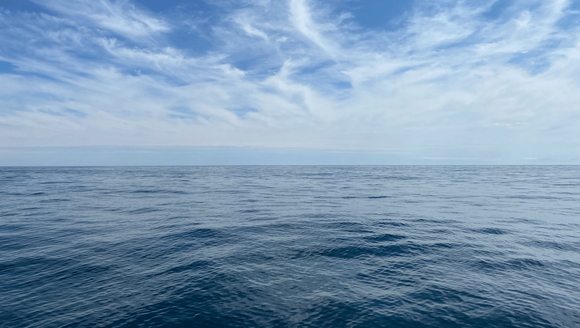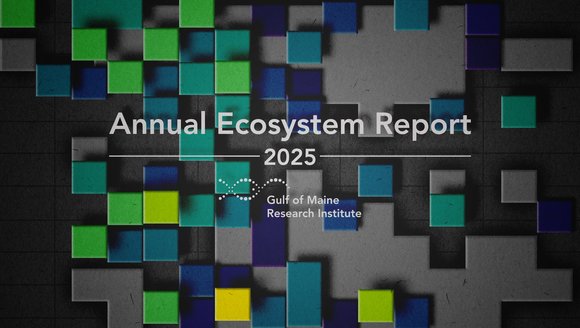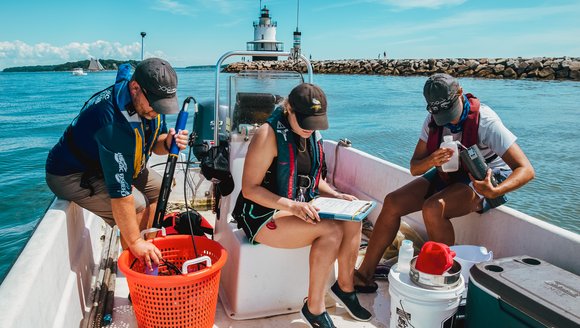Foraging Ecology of Atlantic Bluefin Tuna in the Northwest Atlantic
Finding answers in foraging habits
The ocean is changing. In the Gulf of Maine, annual temperatures are increasing and higher temperatures mean that entire ocean ecosystems may change or shift. Apex predators like Atlantic bluefin tuna will hunt and forage on lots of different species, and so analyzing their foraging habits can provide insights into how the ecosystem is responding to temperature changes, and the possible impacts it may have on top predators in the region.
Research Goals:
- Examine the foraging ecology of Atlantic bluefin tuna in the Gulf of Maine and identify the importance of prey type and diversity.
- Investigate the energy density of prey found in the stomach of Atlantic bluefin tuna and identify the importance of prey by caloric contribution.
- Research the energetic condition of Atlantic bluefin tuna against the prey composition of the stomach.
- Search stomachs for the presence of Atlantic Menhaden.
Fisheries management is a complicated process that involves using mathematical models to assess population status before appropriating an acceptable level of catch that can be removed by commercial and or recreational fisheries. The focus has traditionally been on removals by the fishery only, without considering how much of the resource would be needed for ecosystem services (e.g. predators). As fisheries assessment and management moves forward, we are realizing that a one size fits all approach may not be the best tactic. Consideration for ecosystems needs is important, especially for species with broad impacts across ecosystems, like Atlantic bluefin tuna.
Small pelagic fish are important links in ecosystem food chains, serving as a food source for zooplankton to whales. In the Gulf of Maine, Atlantic herring serve are a crucial part of that chain, and their presence supports commercial fisheries. In recent years, stocks of Atlantic herring have been in decline, shuttering commercial fisheries and removing an important prey source for top predators. Interestingly, as Atlantic herring have declined, another prey source absent from the Gulf of Maine for about 30 years (Atlantic Menhaden) have been increasing.
Atlantic herring have been the primary prey item of Atlantic bluefin tuna across all diet studies over the past 30 years, but with the decline of Atlantic herring and the resurgence of Atlantic menhaden, we hypothesize Atlantic bluefin tuna may switch their main prey to this new source. Both species are small, schooling, and high energy prey.
While a decline in Atlantic herring abundance in the Gulf of Maine is not good for bluefin tuna, it’s possible a switch to Atlantic menhaden may fill that foraging niche. Our study will investigate whether a dietary switch has occurred with Atlantic bluefin tuna in the Gulf of Maine, if menhaden can fill the role of Atlantic herring, and if diet and somatic condition of bluefin tuna are related. Further, prey will be categorized by relative importance based on frequency of occurrence, prey weight, and energetic contribution to diet.
Project Team
-
![]()
Walt Golet
Assistant Professor, UMaine School of Marine Sciences
-
![]()
Samantha Nadeau
Research Associate
Read Next
-
Atlantic Meridional Overturning Circulation (AMOC) 101
This 101 explainer breaks down what the AMOC is, how it influences climate, what scientists are observing now, and what a changing AMOC could mean …
Perspectives
-
2025 Casco Bay Ecosystem Monitoring Report
Dive into the latest findings from a decade of nearshore monitoring in one of the world's fastest-warming marine ecosystems.
Reports
-
Sea State Recap: Developing the Blue Economy and Supporting Working Waterfronts
At our latest Sea State Seminar, we turned our attention to the people and places that keep Maine’s coastal economies alive. Framed by the theme …
Perspectives
-
2025 Research Progress Update
Each year, to keep you updated on our research team's progress, we develop an update showcasing some of our lab's achievements. More broadly, this update …
Reports



